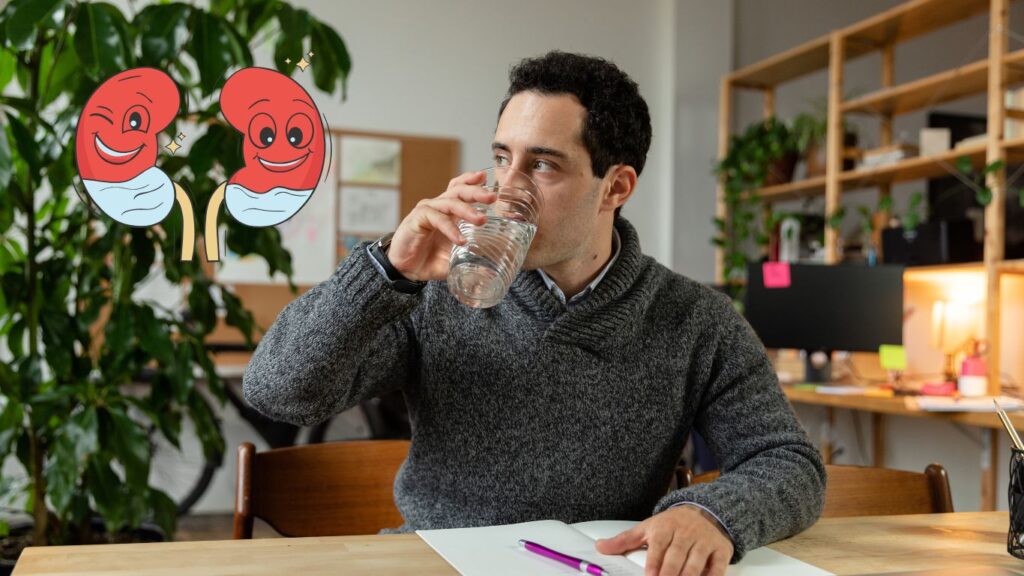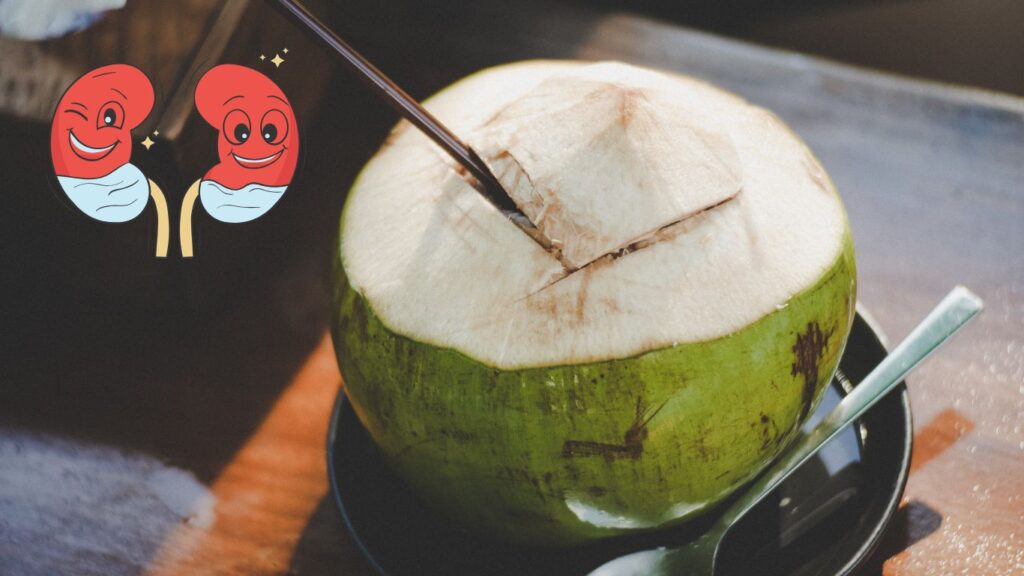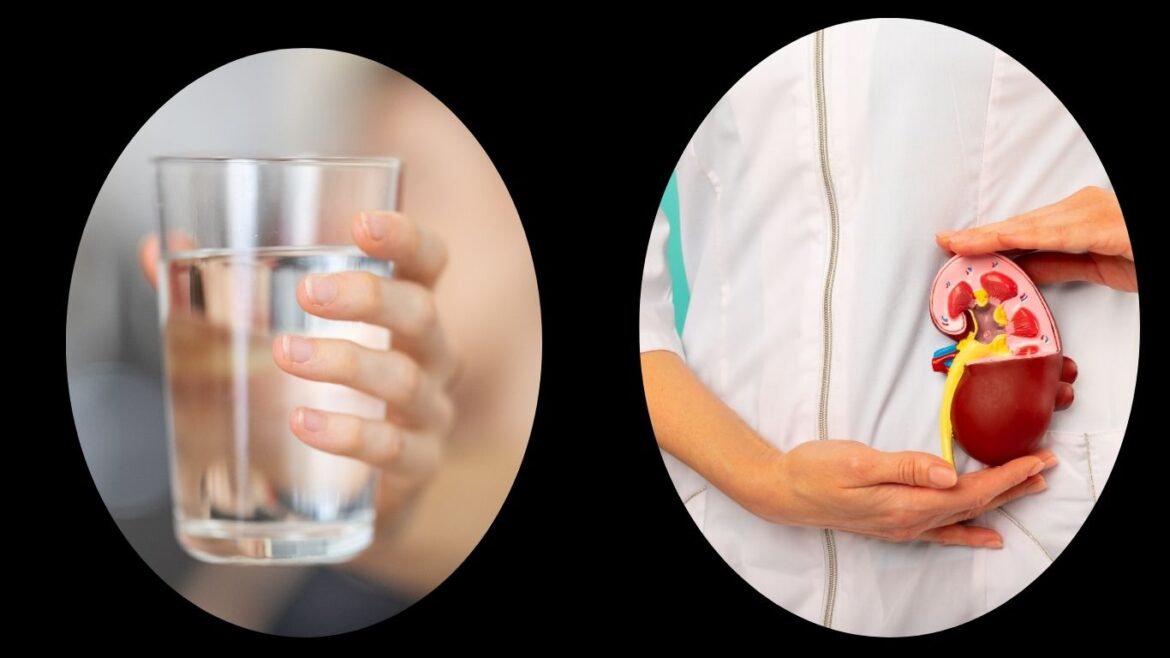Kidney stones are a painful and common condition that affects millions of people worldwide. They form when certain minerals and salts in the urine crystallize and clump together, creating hard deposits. While various factors contribute to kidney stone formation, staying properly hydrated is one of the simplest and most effective ways to prevent them. This blog will explore the role of hydration in preventing kidney stones and provide guidance on how much water you should drink daily.
The Role of Hydration in Preventing Kidney Stones: How Much Water Is Enough?
- Why Hydration Is Key in Preventing Kidney Stones
- How Much Water Should You Drink?
- Factors That Affect Your Hydration Needs
- The Science Behind Hydration and Kidney Stones
- Signs You Are Not Drinking Enough Water
- Tips for Staying Properly Hydrated
- What About Other Fluids?
- Does Drinking More Water Guarantee You Won’t Get Kidney Stones?
- Conclusion
Why Hydration Is Key in Preventing Kidney Stones
Proper hydration helps dilute the substances in urine that can lead to the formation of kidney stones. When you drink enough water, it reduces the concentration of minerals and salts, such as calcium, oxalate, and uric acid, which are the main components of kidney stones. Conversely, when your urine is more concentrated, these substances are more likely to crystallize and form stones.
Dehydration, even mild, can significantly increase the risk of kidney stones. When your body lacks sufficient fluids, urine becomes more concentrated, dark, and less able to flush out minerals and waste products. This environment is ideal for stone formation, making it essential to maintain proper hydration levels.
How Much Water Should You Drink?
The general recommendation for fluid intake is around 8-10 glasses of water per day, which is roughly 2-3 liters. However, this can vary based on individual factors, including age, activity level, climate, and overall health. For those at higher risk of developing kidney stones, increasing water intake to produce at least 2 liters (approximately 8 cups) of urine per day is often recommended.
Factors That Affect Your Hydration Needs
- Activity Level: If you exercise regularly or have a physically demanding job, you will need to drink more water to replace fluids lost through sweat.
- Climate: People living in hot and humid climates tend to lose more fluids through perspiration, requiring increased water intake.
- Health Conditions: Certain medical conditions, such as diabetes or urinary tract infections, can increase fluid loss, making hydration even more important.
- Diet: If your diet is high in protein, salt, or sugar, you may need more water to flush out excess waste products.
The Science Behind Hydration and Kidney Stones
Kidney stones form when the urine contains more crystal-forming substances than the fluid in the urine can dilute. Proper hydration helps in two ways:

- Dilution of Stone-Forming Substances: Drinking more water ensures that these substances are less concentrated, reducing the likelihood of stone formation.
- Increased Urine Flow: A higher volume of urine helps to flush out substances that can lead to stones before they have a chance to crystallize. Frequent urination also prevents the buildup of minerals in the urinary tract.
Signs You Are Not Drinking Enough Water
Understanding the symptoms of dehydration can help you maintain adequate hydration levels. Common signs that you are not drinking enough water include:
- Dark Yellow or Amber Urine: Clear to light yellow urine indicates proper hydration, while darker urine is a sign that you need more fluids.
- Infrequent Urination: If you are not urinating every few hours, it could be a sign of dehydration. Aim to urinate at least 6-7 times a day.
- Dry Mouth and Skin: Persistent dryness in the mouth or skin can be an indicator of low fluid levels.
- Fatigue: Dehydration can lead to tiredness and lethargy, affecting your daily activities.
Tips for Staying Properly Hydrated
Maintaining adequate hydration doesn’t have to be complicated. Here are some practical tips to ensure you’re drinking enough water throughout the day:
- Start Your Day with Water: Drink a glass of water first thing in the morning to kickstart your hydration.
- Carry a Water Bottle: Keep a reusable water bottle with you throughout the day as a reminder to stay hydrated.
- Infuse Water with Flavor: If plain water doesn’t appeal to you, try adding a slice of lemon, cucumber, or fresh mint to enhance the flavor.
- Eat Water-Rich Foods: Foods like cucumbers, watermelon, oranges, and lettuce have high water content and can contribute to your daily hydration.
- Set Reminders: Use your phone to set hourly reminders to drink a glass of water, especially if you tend to forget.
What About Other Fluids?
While water is the best option for staying hydrated, other beverages can also help meet your fluid needs. However, not all drinks are equally effective. Here’s a quick rundown:

- Good Choices: Herbal teas, diluted fruit juices, coconut water, and milk can contribute to hydration.
- Avoid Excessive Caffeine and Sugary Drinks: While coffee, tea, and soft drinks count toward fluid intake, caffeine and sugar can have a diuretic effect, leading to increased urination and potential dehydration. Limit your consumption of these beverages.
- Alcohol: Alcoholic drinks can lead to dehydration and should be consumed in moderation.
Does Drinking More Water Guarantee You Won’t Get Kidney Stones?
While proper hydration is a crucial preventive measure, it doesn’t guarantee that you will never develop kidney stones. Factors such as diet, genetics, and certain medical conditions can still contribute to stone formation. However, drinking sufficient water can significantly reduce your risk, especially when combined with other lifestyle adjustments, like following a balanced diet and managing your intake of stone-promoting foods.
Conclusion
Staying hydrated is one of the simplest and most effective ways to prevent kidney stones. By drinking enough water, you can dilute the substances in your urine that cause stones to form and ensure that waste products are efficiently flushed out of your system. Aim to drink at least 2-3 liters of water daily, but adjust based on your lifestyle, activity level, and climate. Remember, proper hydration is not only beneficial for preventing kidney stones but also promotes overall health and well-being. So, grab that water bottle, keep sipping, and give your kidneys the best chance to stay stone-free.
Also read: 7 Early Signs of Kidney Stones You Shouldn’t Ignore
